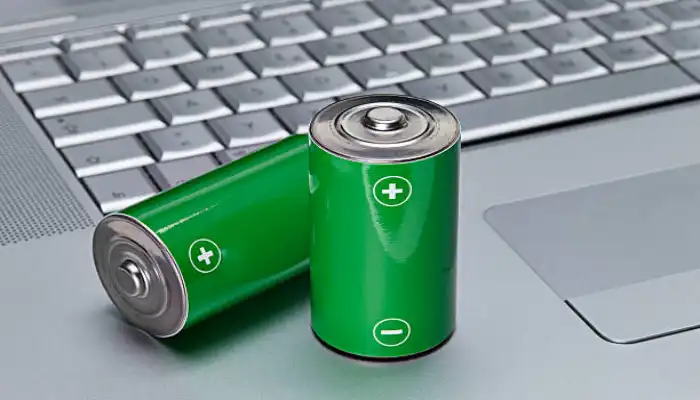You’re likely no stranger to the frustrations of a dying laptop battery, but have you ever stopped to think about where the replacement comes from? China’s bulk laptop battery replacement industry is a booming market experiencing significant growth, driven by increasing demand and stringent regulations. Understanding the trends and innovations shaping this industry is vital as you navigate the complex world of laptop battery replacements. From advances in battery chemistry to sustainable manufacturing practices, many factors are at play – and understanding them could be vital for your next laptop battery purchase.
Market Overview and Analysis
Analyzing China’s laptop battery replacement industry, you’ll notice a complex market driven by increasing demand and stringent regulations. The market’s growth can be attributed to the rising number of laptop users and growing concerns over battery safety and environmental impact. As a result, the demand for high-quality, reliable wholesale laptop replacement batteries has skyrocketed. The Chinese government has implemented strict regulations to guarantee laptop batteries’ safe production and disposal.
This has led to a more competitive market, with manufacturers focusing on producing batteries that meet the required standards. You’ll find that many companies are now offering wholesale laptop replacement batteries with enhanced safety features, such as overcharge protection and thermal management systems.
Advances in Battery Chemistry
Driven by the demand for safer, more efficient, and longer-lasting laptop batteries, manufacturers continually push the boundaries of battery chemistry. As a laptop replacement battery manufacturer, you’re likely aware that advancements in this area are vital for staying competitive. Recent breakthroughs in lithium-ion (Li-ion) battery technology have improved energy density, allowing for longer battery life and faster charging times.
You’re also seeing the emergence of alternative battery chemistries, such as lithium-iron phosphate (LiFePO4) and lithium-nickel manganese cobalt oxide (NMC). These alternatives offer enhanced safety features, including reduced thermal runaway risk and improved electrochemical stability. Additionally, research into solid-state batteries is underway, promising even greater improvements in safety, energy density, and charging speeds.
Understanding these advancements is essential for a laptop replacement battery manufacturer to develop high-quality products that meet customers’ evolving needs. By staying up-to-date with the latest developments in battery chemistry, you can create more efficient, reliable, and safe laptop batteries that set your business apart in the market. This knowledge will help you make informed decisions about your product lineup and manufacturing processes.
Manufacturing Process Innovations
As advancements in battery chemistry continue to shape the laptop replacement battery industry, manufacturers are also focusing on fine-tuning their manufacturing processes. You’ll notice an emphasis on automation, as companies aim to streamline production and reduce labor costs. Robotics and machine learning algorithms are integrated into assembly lines to improve efficiency and precision. This increases output and minimizes the risk of human error, resulting in higher-quality bulk laptop replacement batteries.
Innovations in cell design and packaging are also transforming the manufacturing process. Modular designs enable manufacturers to produce a wider range of battery configurations, catering to diverse customer needs. Additionally, advancements in battery management systems (BMS) allow for real-time monitoring and control, ensuring the ideal performance and longevity of bulk laptop replacement batteries.
Sustainability and Environmental Impact
The laptop battery replacement industry’s growing focus on sustainability is yielding significant environmental benefits. As a result, you’re seeing a shift towards eco-friendly practices in China’s bulk laptop battery replacement industry. This is largely driven by the need to reduce electronic waste and minimize the environmental impact of battery production. When sourcing laptop batteries, you’ll find that many suppliers, including laptop replacement batteries, are implementing sustainable practices. These practices include using recyclable materials, reducing energy consumption, and implementing responsible waste management systems. Choosing suppliers prioritizing sustainability can reduce your environmental footprint and contribute to a more circular economy.
Future Trends and Developments
In the next decade, advancements in China’s laptop battery replacement industry are poised to revolutionize how suppliers and manufacturers design, produce, and recycle batteries. As you explore this industry’s future trends and developments, you’ll notice a significant shift towards sustainable and eco-friendly practices. The increasing demand for environmentally responsible products will drive the adoption of recyclable battery materials and efficient manufacturing processes.
You can expect the wholesale aftermarket laptop battery market to play a pivotal role in this transformation. Suppliers will focus on developing high-quality, affordable batteries that meet the growing need for eco-friendly replacements. Integrating advanced technologies, such as lithium-ion batteries and battery management systems, will also become more prevalent.
Conclusion
As you look to the future of China’s bulk laptop battery replacement industry, it’s clear that innovation and sustainability will drive growth. With the industry expected to reach $13.6 billion by 2025, it’s no surprise that suppliers are shifting focus towards eco-friendly practices. As the demand for high-quality, affordable, and eco-friendly batteries continues to rise, you can expect to see significant advancements in lithium-ion battery technology and alternative chemistries in the years to come.

